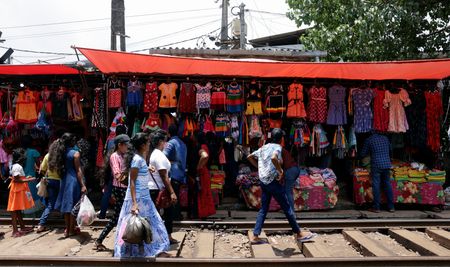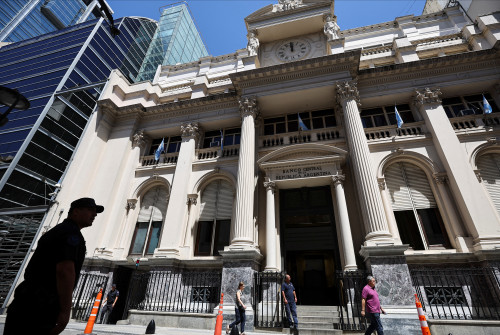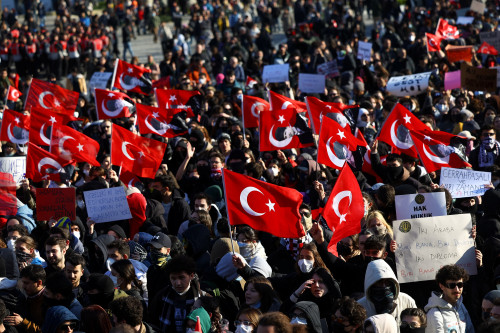By Uditha Jayasinghe
(Reuters) -Sri Lanka’s National Consumer Price Index (NCPI) eased to 49.2% year-on-year in March, after a 53.6% rise in February, the statistics department said on Friday.
Food inflation eased to 42.3% in March from 49% in February, while non-food inflation was at 54.9%, the Department of Census and Statistics said in a statement.
This is the first time inflation has dropped below 50% since August last year.
The island’s 22 million people have faced soaring inflation since early 2022, partly caused by a severe foreign exchange shortage that triggered the worst financial crisis in seven decades and forced the country to default on its debt repayments.
“Given the high base, subdued demand and improved costs because of lower global commodity prices and a more stable currency, Sri Lanka could see its inflation reducing to below 40% from the end of April onwards,” said Sanjeewa Fernando Senior Vice President Research at Asia Securities.
Sri Lanka’s central bank kept interest rates steady in April and expressed optimism that inflation would decelerate sharply in the coming months, in its first policy decision since securing a $3 billion bailout from the International Monetary Fund (IMF).
Central bank Governor Nandalal Weerasinghe said a favourable base effect would kick in from next month with inflation projected to hit single digits by end-December.
The NCPI captures broader retail price inflation and is released with a lag of 21 days every month.
The Colombo Consumer Price Index (CCPI), released at the end of each month, eased to 50.3% in March from 50.6% in February, data from the statistics department showed.
(Reporting by Rama Venkat in Bengaluru, editing by John Stonestreet and Louise Heavens)





